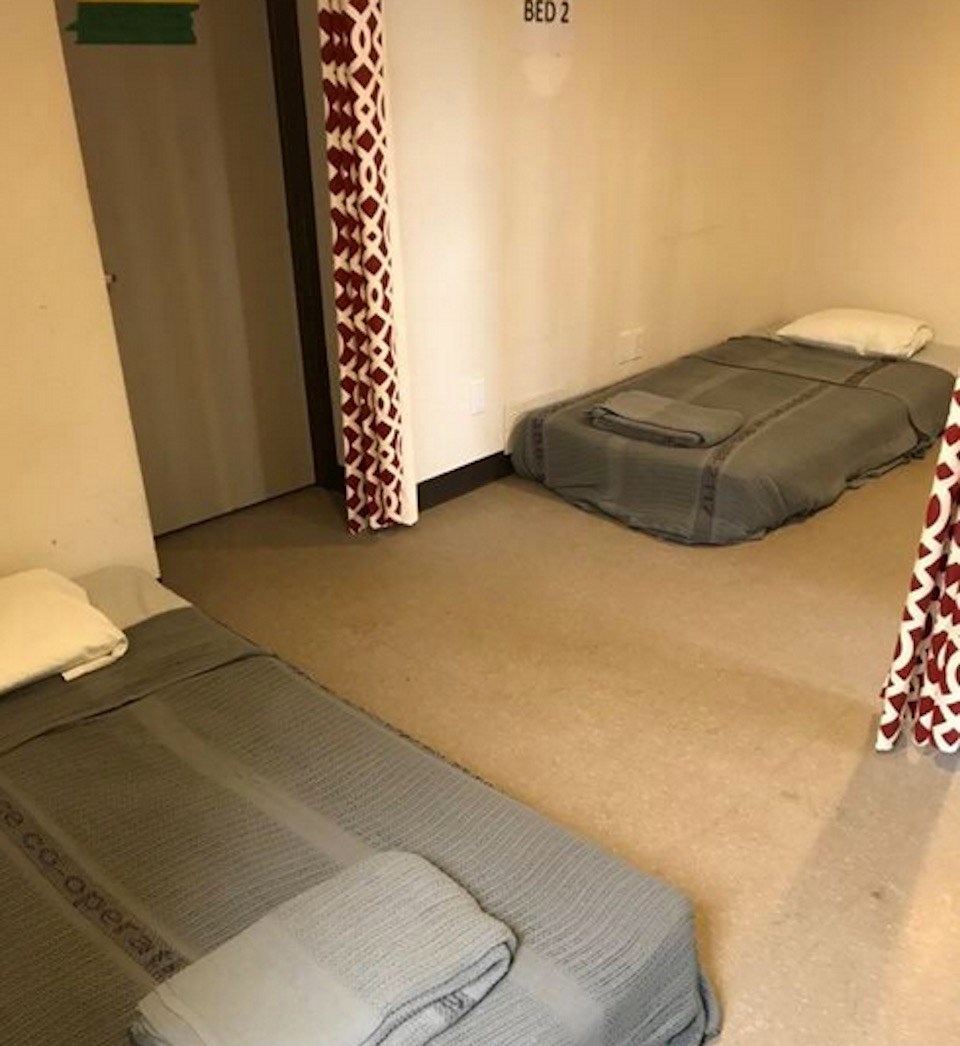A pilot project offering people recovering from substance abuse a safe place to sleep has hit the end of its initial funding, but the deputy chief of Guelph-Wellington Emergency Medical Service says new funding will allow the project to continue to the end of May.
The Supported Recovery Room (SRR) is a two-bed facility at Wyndham House that opened in January, allowing people recovering from substance use to sleep off the effects under the supervision of paramedics.
Under normal circumstances, paramedics see substance users for 10 to 15 minutes on the way to the hospital, said Leanne Swantko, deputy chief go GWEMS.
Some users of the facility have slept off the effects of the substances they are using for up to 24 hours, said Swantko, and come from a diverse range of backgrounds — including low income, homeless, people with mental health issues and Indigenous people..
“We are actually establishing a bit of a relationship, which has been really beneficial to staff. Paramedics are advising me it is really changing their perspective on this population and it feels really good to be kind,” she said.
The facility has seen people under the influence of alcohol, opioids, heroin or marijuana, but Swantko said the most common substance used by far is methamphetamine.
“These folks have no where to go and if they fall asleep some place, there’s a huge fear of being robbed and their belongings being taken,” said Swank.
To date, the facility has had 85 clients come through the doors, with an occupancy rate of 69 per cent.
Clients must be at least 16 years of age, medically stable, have a noted substance use and be ready to rest.
About 15 per cent of the time both beds are in use and there have been times potential clients have had to be turned away, said Swantko.
Something that is really exciting, said Swantko, is the pressure taken off paramedics in the field who are often delayed when offloading patients to the Emergency Department at Guelph General Hospital.
Now, the SRR is able to take up to two people who might otherwise be taking up a bed in the Emergency Room or hospital.
“Typically those are people that have been in (the Emergency Department) and have gone through some assessment that determined they need medical oversight, but not at a full-on Emergency Department. The hospital will call us and transfer the patient over to the clinic,” she added.
Guelph Wellington is the only municipality Swantko knows of that utilized Community Paramedics in a facility like the SRR.
The pilot project was initiated with three-month funding from the Waterloo Wellington Local Health Integration Network (LHIN) that ended March 31. Swantko said the pilot project has been extended to May 27, 2018.
Clients using the facility often leave well rested and well fed, said Swantko, but even more importantly some have decided to go straight from the facility to a detox centre.
“That was a surprise to us, because we anticipated people would rest, go back into the community and we assumed they would keep coming through the cycle but some people have actually paused and taken that step,” said Swank.
